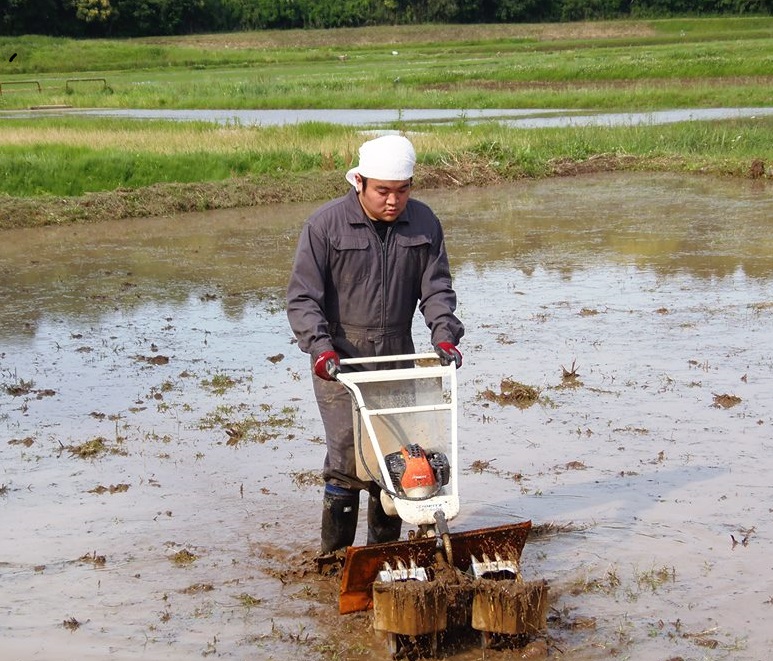Visiting Graduate Student: Ryota Tsuchiya
November 2014
Our newest visitor to the Texas A&M Agrililife | Blackland Research Center (BREC) is Ryota Tsuchiya, a graduate student visiting from Tokyo to expand upon his work with our modeling systems for his graduate thesis.
In his research, Ryota is trying to apply the SWAT (Soil and Water Assessment Tool) model to the small river catchment in the Basin of Imbanuma Lake located approximately 60km east of Tokyo. The river basin currently suffers from a serious problem with eutrophication (dense, rapid growth of plant life in a lake or other body of water, which causes a lack of oxygen) caused by pollutants from non-point sources like farms and urban areas. Ryota has chosen SWAT to assess the management practices in this watershed for his Master’s research. However, the current version of SWAT cannot simulate water and mass balance in a paddy field, a crop which accounts for a huge portion of land use in East Asian countries and consumes large quantities of water. In addition, water management in paddy fields is very important for water quality because these crops can purify polluted water. Ryota will be visiting us in Temple, TX for three months, during which he will be working hard to incorporate the rice paddy process into the SWAT model and utilize it for assessing effective management in East Asian countries.
Ryota is able to visit the Blackland Research Center through the support of his research supervisor, Dr. Tasuku Kato (Tokyo University of Agriculture and Technology, Japan) and Dr. Jaehak Jeong (BREC, Temple, TX). His visit has been financially supported by the “Japan Public-Private Partnership Student Study Abroad Program TOBITATE! Young Ambassador Program” from the Japan Student Services Organization (JASSO).

Ryota studies in the Laboratory of Water Environmental Conservation in Irrigation and Drainage in the Department of International Environmental and Agricultural Science under the Graduate School of Agriculture at Tokyo University of Agriculture and Technology (TUAT).
